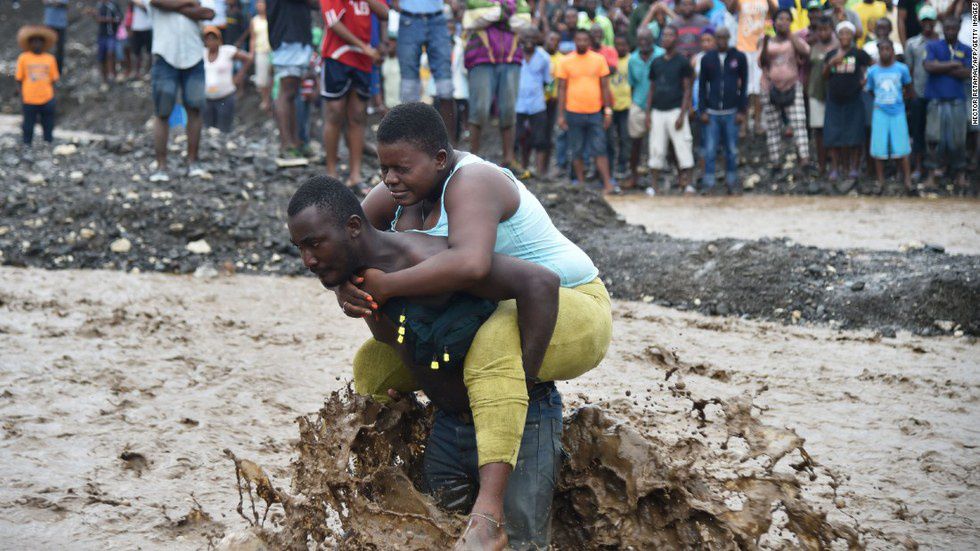Over the past week, much of the east coast has been watching the relentless and unpredictable Hurricane Matthew. Matthew's journey began around Barbados as a tropical storm. With maximum winds around 60 miles per hour, Matthew would make way to Haiti and Cuba, strengthening to a catastrophic category four hurricane. The cone of uncertainty, which tells where the center of the storm may go, changed quite a bit. This left many US citizens on edge, causing millions to pack up and leave their homes behind in hopes of escaping the fury of Matthew.
While the threat was imminent and dangerous from Florida all the way up to North Carolina, none of this could even compare to what hit Haiti, the Bahamas, and Cuba. Matthew first made landfall in Haiti on Thursday, then clipped the eastern coast of Cuba, and moved on to plow through nearly every island in the Bahamas. As Haiti is still recovering from the catastrophic earthquake in 2010, it was clear that Hurricane Matthew would be detrimental. However, details about just how deadly the storm was are just now slowly coming to light.
Within just twelve hours of the storm making landfall, there were nine fatalities reported. As Matthew moved forward on its path of destruction, the devastating reality of just how extensive the damage in Haiti was became visible. There have been photos of homes almost leveled to the ground and of community members carrying dead bodies to be buried. With extremely limited resources, hundreds of thousands of Haitians were left homeless and in need, with no one to help.
With the storm reaching Florida and moving up the coast, there has been a bit of damage. Flood waters and winds have downed trees, flooded some homes, and caused mostly cosmetic damage. News channels have repeatedly shown clips of cosmetic damage to homes and business and water-logged cars, yet there has been almost no images of what has been going on in Haiti. As the death toll in Haiti nears 900, and is expected to rise even higher, the main priority should be aid. It is imperative to bring attention to the humanitarian catastrophe in Haiti. While many of us in the southeastern states are worried about losing power for a few hours during the storm, thousands in Haiti are without food and clean water. Many are even dying from cholera due to the lack of resources and aid. The people of Haiti are in dire need of help, and it is important to get this word out.






















